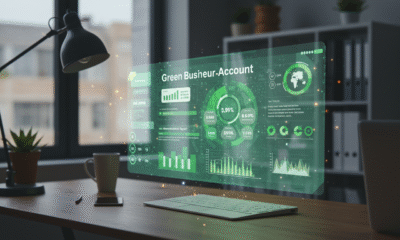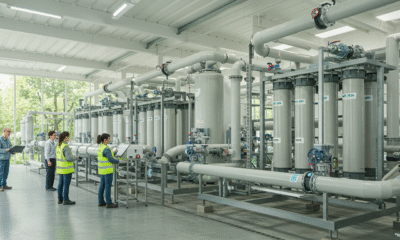Sustainability is important to businesses both in terms of attracting and retaining eco-conscious customers, and when it comes to improving efficiency and reducing costs.
Much of this starts with the premises your organization occupies, so let’s talk through a few tactics to improve the environmental credentials of your brand with some on-site tweaks that really make a difference.
Look into lighting
Choosing eco-friendly lights rather than less efficient equivalents is a good idea to help you go green and also to minimize the impact of rising energy costs.
Making use of LED-based bulbs internally and externally can slash the amount of electricity consumed in-house, for example. And while there are costs involved in switching, these are easily outweighed by the savings you’ll make over time.
Buy quality parts that won’t wear out, e.g. gate loop detectors
The old adage of ‘buy cheap, buy twice’ still rings true, and is an important point to bear in mind from a sustainability standpoint.
So rather than going for the cheapest possible option, especially for components that get a lot of use from day to day, spend extra so that quality is assured. This applies to everything from a gate loop detector to door handles and hinges.
Consider heating and cooling
Warming your premises in the winter and cooling it in the summer generates lots of emissions and also creates big bills for your business to shoulder.
However, there are a few ways to reduce the strain you put on the environment and your budget if you are savvy about this.
For example, adjusting the thermostat down by even one or two degrees during the colder months can have a cumulatively significant effect. Following official OSHA temperature guidelines is also wise to keep employees comfortable and safe.
Think about hardware usage
Putting policies in place to prevent hardware from being left on and active for long periods even if it is not being used is advisable.
For example, getting employees to shut down their workstations when they leave at the end of the day, rather than keeping them on overnight for no reason, will prevent unnecessary energy usage.
Reduce paper consumption
While it might not be reasonable to go completely paperless at your workplace, you can certainly take steps to drive down the use of this precious natural resource.
Again, keeping employees in the loop on this is a must, and being consistent with rules across the company will prevent confusion and consternation.
Having a unified policy for printing documents, for example, is recommended. Using double-sided printing, and recommending that emails are used in place of letters wherever possible for everything from marketing to customer support, is a good starting point.
Any paper you do should be recycled rather than mixed in with general waste, and using recycled paper products can further bolster your green reputation.
Insulate your buildings
You won’t need to spend as much heating or cooling your premises if the buildings themselves are properly insulated.
Just as there are schemes to support energy efficiency in homes, businesses can also take advantage of local and national grants and incentives to make positive changes.
Harvest renewable energy
If you’re willing to go a step further, then setting up solar panels or even wind turbines on your business premises can help you to generate energy renewably without needing to be reliant on the main grid.
Again, you’ll have to see this as a long-term investment with upfront costs. But as with all eco-friendly changes, you need to be looking to the future rather than worrying about the expense or disruption in the present.


 Features11 months ago
Features11 months agoEco-Friendly Cryptocurrencies: Sustainable Investment Choices

 Energy11 months ago
Energy11 months agoThe Growing Role of Solar Panels in Ireland’s Energy Future

 Energy10 months ago
Energy10 months agoGrowth of Solar Power in Dublin: A Sustainable Revolution

 Energy10 months ago
Energy10 months agoRenewable Energy Adoption Can Combat Climate Change





























